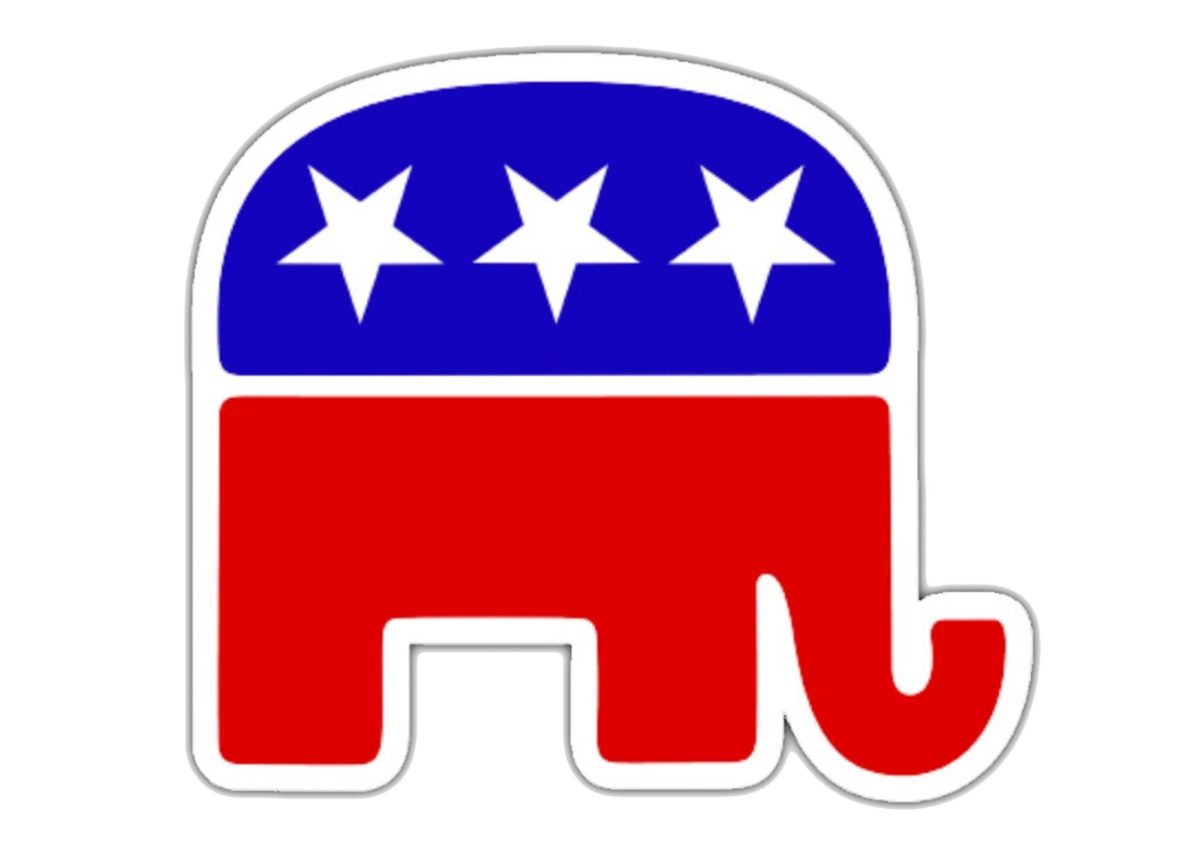Year after year, white evangelical voters turn out to the polls in astonishing numbers, providing the Republican Party with one of the most loyal voting bases in the United States.
Despite making up only 15% of the U.S. population, white evangelical voters represent about a quarter of U.S. voters, according to Robert P. Jones, the CEO of the Public Religion Research Institute.
According to a Pew Research Center survey, 56% of the evangelicals surveyed identify as Republican, with only 28% identifying as Democrats.
This affiliation has only become stronger since Former President Donald Trump ran for office. In 2020, the Associated Press VoteCast survey reported that 81% of white evangelical Protestant voters supported Trump. How did white evangelical Protestants become so deeply tied to the Republican Party?
Nikhil Chand, a senior at University High School (UHS) who is a self-identified Catholic and co-leads the UHS Christian Club, spoke to the difficulty of separating religion and politics. “Evangelical, at least theologically, in my opinion, means that you’re kind of incorporating the Christian message into every component of your life,” he said in an interview with The Urban Legend.
History Teacher Christopher Gonzalez-Crane shared a similar view on how religion informs peoples’ political alignment. “There’s the degree to which religion informs foundational values at any period of time,” he said.
However, Gonzalez-Crane also notes the political strategies often used purposefully to appeal to specific religious groups. “But then there’s the degree to which religion is deployed, or utilized to garner particular support for a particular political party. And those are two separate things,” he said.
In 1973, Paul Weyrich, a Republican politician associated with the New Right, a conservative political doctrine, recognized evangelical’s frustration with integration as an opportunity to bring them to the polls as Republicans.
“[Weyrich] had been trying since the Goldwater campaign in 1964 to interest evangelicals in politics. Nothing caught their attention … until the IRS began to challenge the tax exemption of … whites-only segregation academies,” wrote Balmer.
However, Weyrich quickly switched his focus. He saw the outrage evangelicals had in response to school integration but knew that publicly promoting being anti-integration had less mass appeal.
“[Weyrich] was politically savvy enough to know that a rallying cry in opposition to integration wasn’t a good look,” said Katie Thornton in her podcast, “The Divided Dial,” a series that delves into how Republicans came to be involved with talk radio. “So he hitched the anger over the school fight to another, more palatable cause: abortion.”
The spread of Weyrich’s ideology and the Republican Party’s mobilization of evangelicals is primarily attributed to talk show radio.
Salem Media was the primary American radio broadcasting company that used its air time to spread its political and religious ideologies to mainly Christian listeners. The website reads, “[We] provide the hope of the Gospel around the world and across the block through a variety of media.” Much of this Gospel promoted exactly what Weyrich hoped for.
Salem acquired thousands of new stations in the 1970s, which helped them reach a wider audience. The station was able to promote preachers, allowing them to fill the majority of the air time with religious morals, including the denunciation of abortion. Salem Media was one of the first groups to bring the issue of Roe vs. Wade to an evangelical audience. The broadcast episodes quickly turned thousands of new evangelical voters to the polls to vote against abortion, garnering support for the Republican Party.
Since radio stations like Salem Media entered the public eye and spread Weyrich’s ideals, they have been capturing the attention of evangelicals across the nation. The National Organization for Women Foundation website reads, “[There is] a strengthening association between the Republican Party and Christian values, evident in the significant uptick in protests outside abortion clinics by individuals who supported overturning Roe.”
In the past five years, the term evangelical has begun to include individuals who are less religious. In fact, some have fallen into the party solely due to its political affiliation, in particular with Trump. The New York Times reported, “Many Americans who have begun to embrace the evangelical identity are people who hardly ever attend religious services. In 2008, about a third of evangelicals who never attended church said they were politically conservative. By 2019, that had risen to about 50%.”
Worshiping or not, evangelicals have supported Republican candidates for many years, and Trump had a similar draw.
“[What encouraged evangelical support] was really the ‘Make America Great Again’ mantra. I think most of the power of that slogan was in the last word: again,” said Jones. “It was hearkening back to a kind of 1950s America, where white Christians and particularly white Anglo-Saxon Protestants were more dominant in the society demographically and culturally.”
However, this doesn’t apply to all evangelicals’ experience with the Republican Party. Tim Alberta, a staff writer for The Atlantic who believes in Jesus Christ and is the son of an evangelical minister, notes a moral divide within evangelicals in his article. “I did see evangelicals divided into two camps — one side faithful to an eternal covenant, the other side bowing to earthly idols of nation and influence and fame,” Alberta said.
For many Christian individuals, Alberta’s father included, they felt an obligation to support Trump – the Republican candidate – due to a concern about abortion and an undecided Supreme Court majority.
However, that less enthusiastic support took a turn for many. “Over the next couple of years, [my father] became an apologist for Trump’s antics, dismissing criticisms of the president’s conduct as little more than an attempt to marginalize his supporters,” said Alberta.
For many, Trump began to represent the entirety of his evangelical followers. An attack on Trump was an attack on their faith.
This conflict connects to the religious founding of the United States. Many Americans believe that there was a religious conception of this country. The Pew Research Center reports that 60% of surveyed adult Americans say the founders of the United States originally intended for it to be a Christian nation.
The St. James Encyclopedia of Popular Culture Online said, “The New England Puritans of the seventeenth century believed that they were founding a holy commonwealth and that they were entering into an explicit covenant with God.”
For some Americans, everything that they do is connected to the idea that they were sent to complete a mission by God’s orders, making it difficult to separate their religious beliefs from their political ones. The presence of evangelicalism in the Republican Party is one demonstration of the success of religion being strategically deployed in order to gain support for a political party.
The St. James Encyclopedia of Popular Culture Online wrote, “This combination of covenantal thinking and sense of divine mission has shaped American Protestants’ perceptions of themselves as custodians of U.S. culture.”


